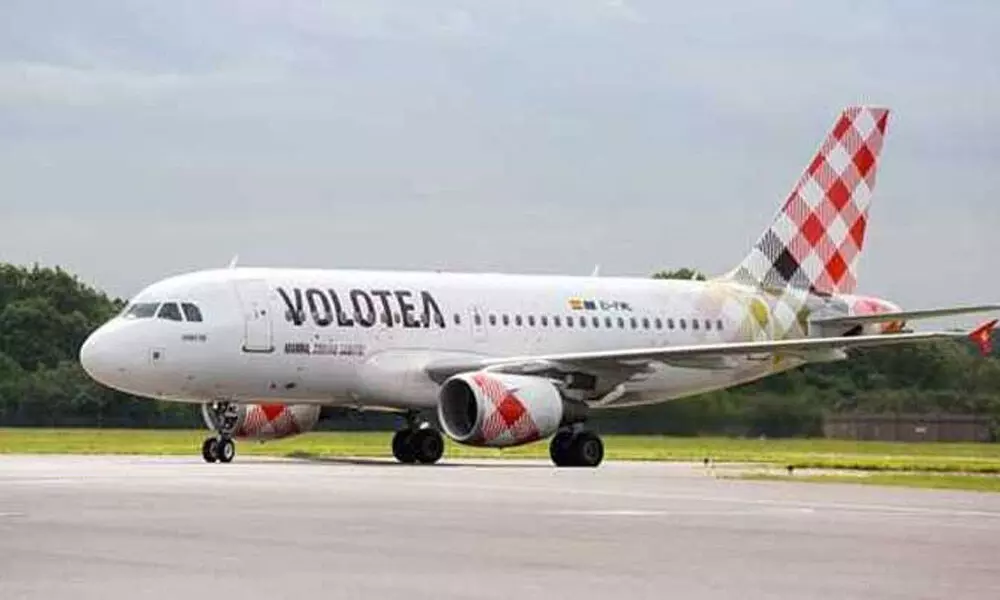Datalex outlines digital airline retail transformation priorities for 2022
Any investment an airline makes in digital transformation today will lay the foundation for building the data repository and analytics capability required to meet the demands of tomorrow’s market
image for illustrative purpose

In a highly competitive market, both traditional and low-cost carriers require new strategies to differentiate themselves from their competitors. Over the past decade, the growth of the Internet, e-commerce, and the development of multiple digital channels have had a profound effect on the travel industry. Digital transformation and data-driven business models have emerged as key enablers, in allowing players to distinguish themselves from others in the pack.
Airlines in particular have traditionally had access to huge reserves of transactional data about their consumers. Digital customer interactions now provide new data points about customer behaviour, which airlines can combine with insights gleaned both from internal sources such as reservation systems, and external sources like social media.
Information and technology now empower consumers more than ever before. Prospective travellers once had to rely on professional consultants, to find and compare all of the best airfares, schedules, and travel itineraries. But with the resources now available through online platforms and mobile apps, travellers can be their own travel agent.
Datalex, the travel retail software provider has published a new report set out to uncover airlines' digital priorities in preparation for a return to profitability in 2022. The report, titled 'Dynamic Times – The Digital Airline and Customer 2022', reflects insights from independent research commissioned by Datalex, conducted in November 2021, with over 100 senior airline executives worldwide, regarding their top digital retail transformation priorities for 2022, with a particular focus on AI-powered dynamic pricing strategies and data-driven merchandising.
This is then coupled with findings from further research with 10,000 travellers worldwide to identify their evolved digital travel expectations, new booking behaviour, attitudes towards pricing and willingness to pay as we continue to live in a Covid-centric world.
The report states: "A digital renewal is on the agenda, airlines appetite and mindset towards digital innovation has shifted dramatically, the opportunity is significant, and the opportunity is now. Travellers have changed and expect their airline and travel experience to have changed too. With ultra-flexibility, digital rich, seamless experiences, sustainability and the 'me focus' at the core." You can access the full report here.
The report categorises airlines' digital transformation priorities for the next three years in five key areas: Customer centric experience – with initiatives to drive improved customer engagement and an enhanced travel experience including customer centric pricing & offers, biometrics, robotics and contactless travel, empowering travellers with digital self-service
Artificial intelligence and automation – for operational efficiencies, to drive greater flexibility and crucially to enable airlines to cross-sell, upsell and serve in the moment of need using AI to power superior customer interactions
Data – with actionable analytics and insights to really make personalisation of the traveller experience a reality. Cloud transition – to achieve greater efficiencies, greater agility as well as cost reductions via SaaS (Software as a Service) and IaaS (Infrastructure as a Service). Payment innovation – to allow for more choice, flexibility and modern ways to pay.
Other key areas for investment that have been highlighted include IOT, blockchain, virtual reality and cyber security. Overall, the report states that most airlines surveyed acknowledge they need to invest more in digital retail.
Among the key areas of importance for airlines as highlighted in the report are AI-powered dynamic pricing, dynamic offer, greater personalisation, NDC and One Order. For example, 89 per cent of airline executives surveyed rated One Order and AI-powered dynamic pricing as important in their innovation strategy post-Covid-19, closely followed by 87 per cent of airline executives surveyed rating dynamic offer as important in their innovation strategy post-Covid-19. The airlines surveyed gave slightly higher ratings for flexible and an increased number of payment choices for customers at 91 per cent and advanced personalisation for better customer centricity at 95 per cent.

